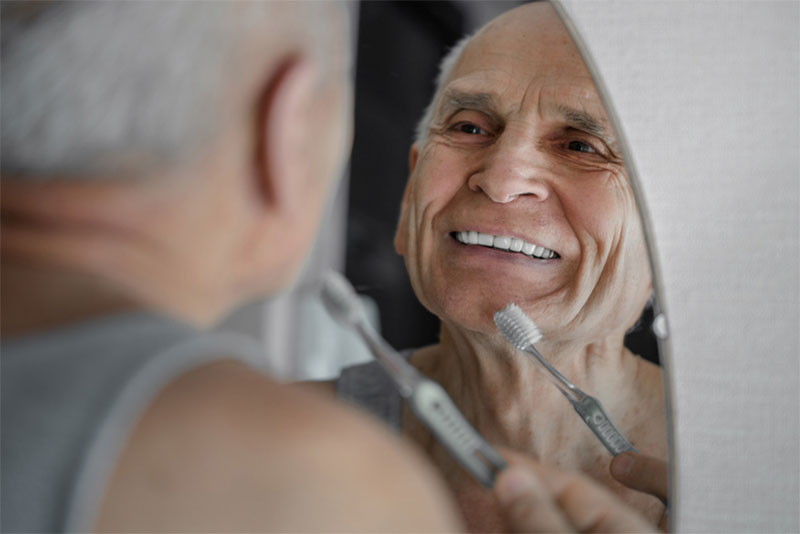
These strategies to help dementia patients preserve independence are surprisingly simple to implement.
If you’re caring for a loved one with Alzheimer’s disease, you may be inclined to do as much as possible for the person to relieve the strain of even the most basic daily tasks. Independent living and dementia may even seem like polar opposites. However, we all have a natural need to preserve self-reliance and the freedom to stay in control of our lives. This is true in spite of Alzheimer’s and other forms of dementia. As a result, it is very important to foster independence for the person you love, to whatever degree feasible.
What Are Some Strategies to Help Dementia Patients Remain Independent?
It takes some extra time and effort to adapt daily activities to foster self-sufficiency, but it will be well worth it. And of course, the stage of dementia will be a prominent consideration in how much adaptability is required. The following are some tips to get you started on rethinking how day-to-day tasks can be completed effectively for someone with dementia.
Preparation and Set-Up
Think through the steps involved with a particular activity, and which might be challenging for the older adult. For example, reaching up to get a dish out of a high cabinet, twisting the tie off a bread bag, and making a sandwich may be challenging. In this instance, before the individual comes into the kitchen, take care of those steps, getting out the plate and laying out items to make a sandwich. They may then be able to finish the task on their own. In the same way, you can lay out clothing, put out the items for toothbrushing, or whatever advance steps will allow them to take care of these kinds of activities on their own.
Stand Back But Model and Prompt as Needed
Allow the person some space to attempt the task, but remain nearby to provide assistance as needed. This will allow as much independence as possible without causing the person frustration in the event that the task turns out to be too difficult. For example, the individual may pick up the toothbrush but seem uncertain of how to proceed next. There are many ways you can offer help. One especially unobtrusive way is through nonverbal modeling. You could pick up your own toothbrush, and while you are both looking at the mirror, start to brush your own teeth. This may be all that’s necessary for the individual to copy your actions. If this doesn’t work, try a question prompt, for example, “I see you’re holding your toothbrush; what’s next?”
Use Step-by-Step Instructions
If prompting and modeling aren’t helping, try breaking the task down into smaller steps and offering verbal cues for each step as required. In the example above, it might look something like this: “Let’s place the toothbrush on our teeth. Now we will move the brush back and forth, like this. Next, let’s take a sip of water and rinse.” After each step, pause and see if the individual can continue themselves, and if so, end your verbal coaching and step back once again to allow them to finish the task themselves.
Monitor
Whatever the person’s skill level, be sure to stay close enough to guarantee safety. This does not mean hovering over the person while they are brushing their teeth. But it does mean being close enough to make sure they’re turning on cool water rather than hot to prevent a burn. There is a fine line to walk between safety and independence.
At Anthem Home Care, a trusted provider of dementia care services in Rockport, Corpus Christi, Portland, and the surrounding areas, it is always our top priority to encourage older adults to maintain as much control over their daily lives and choices as possible, while guaranteeing their wellbeing and safety. Contact us at 361-643-2323 if you would like to consult with us about any challenges you’re facing in caring for a loved one with dementia. We are always here to help.
